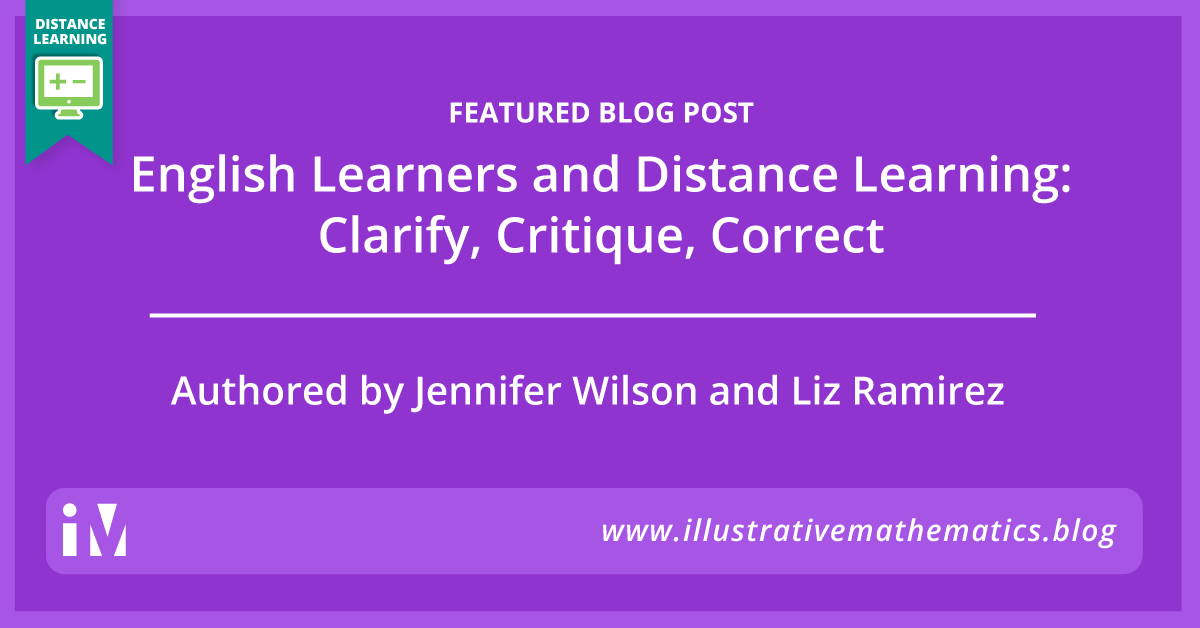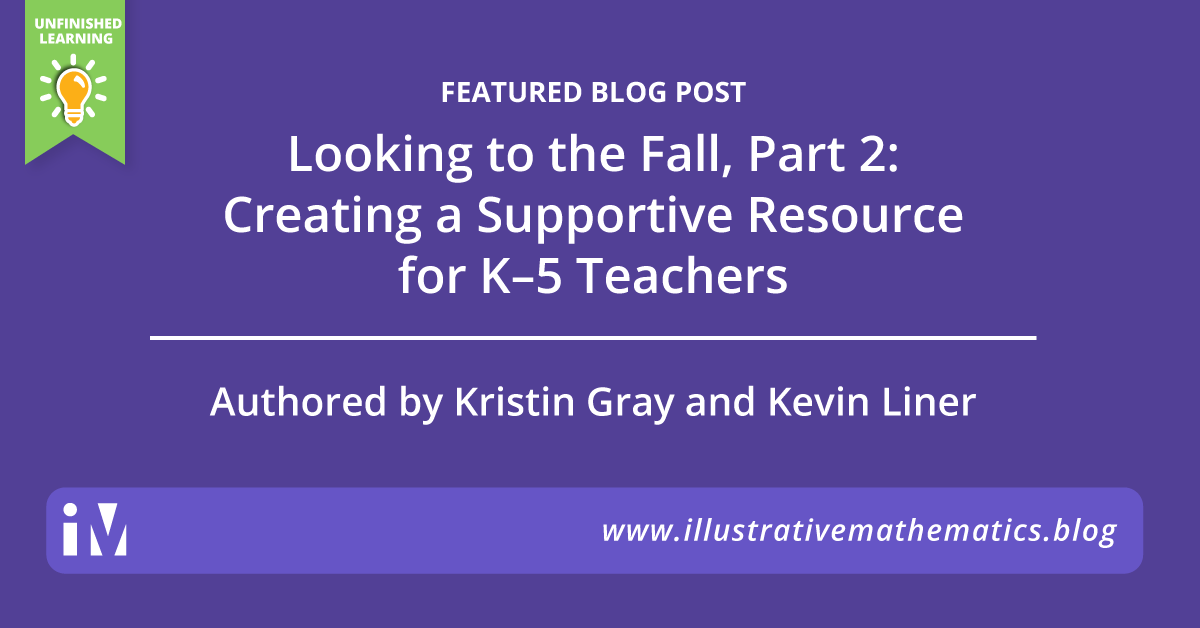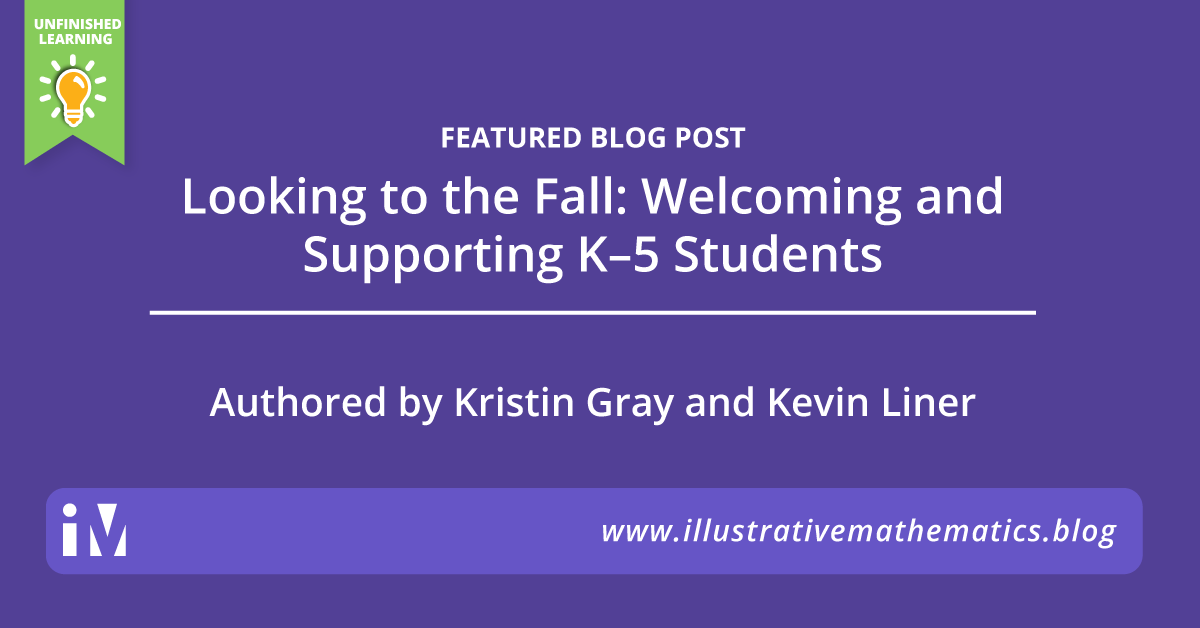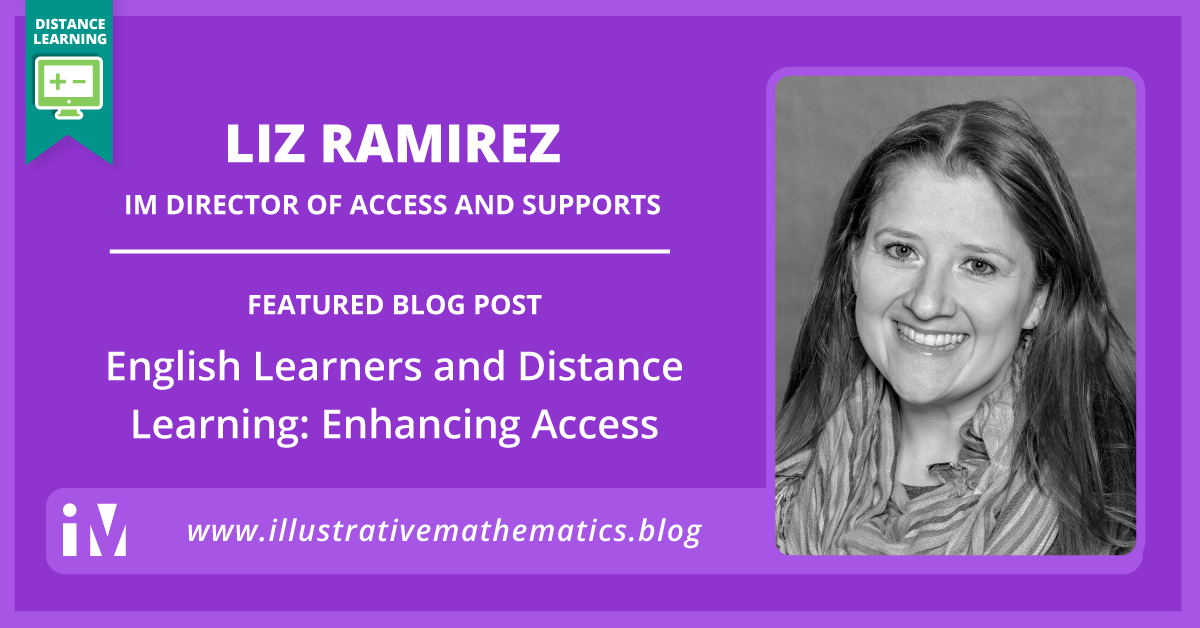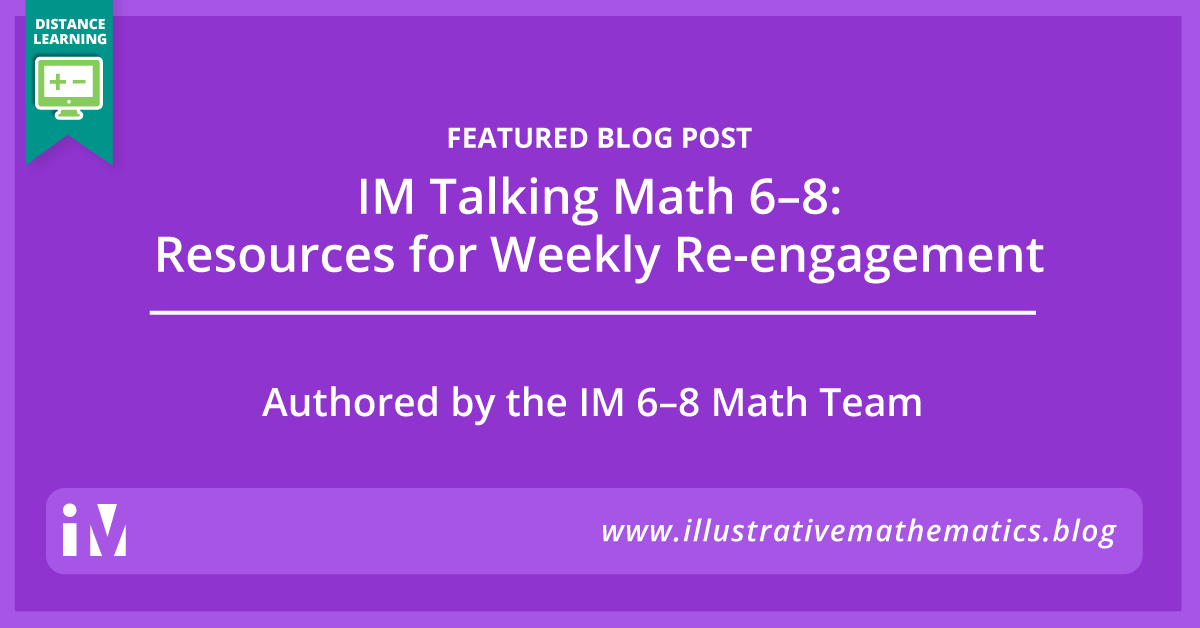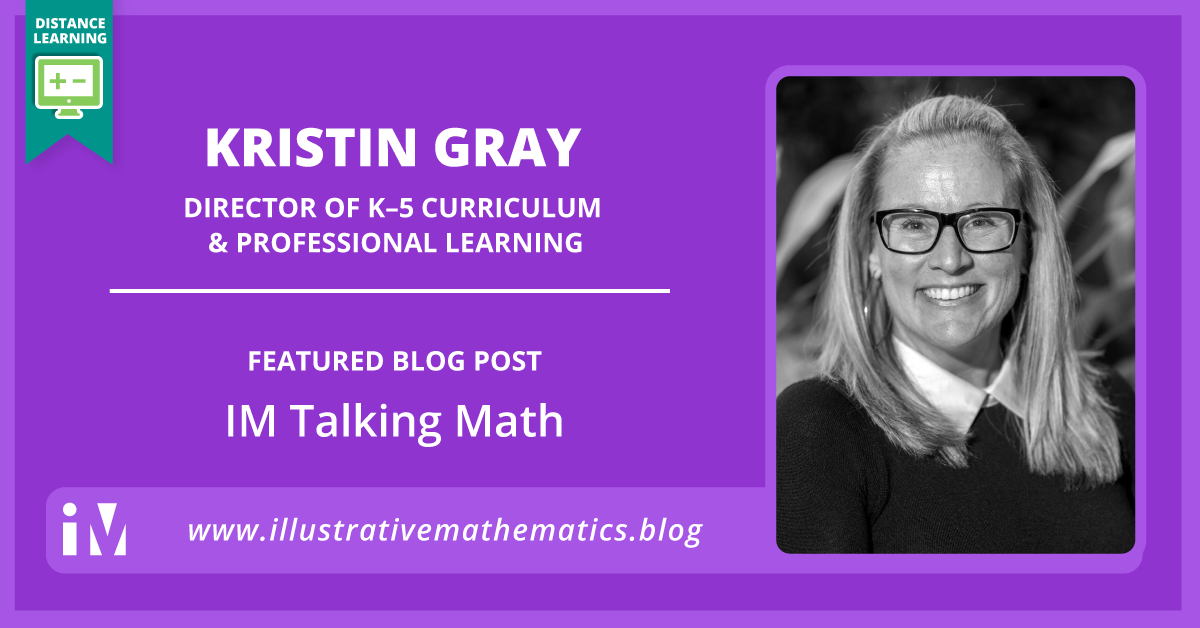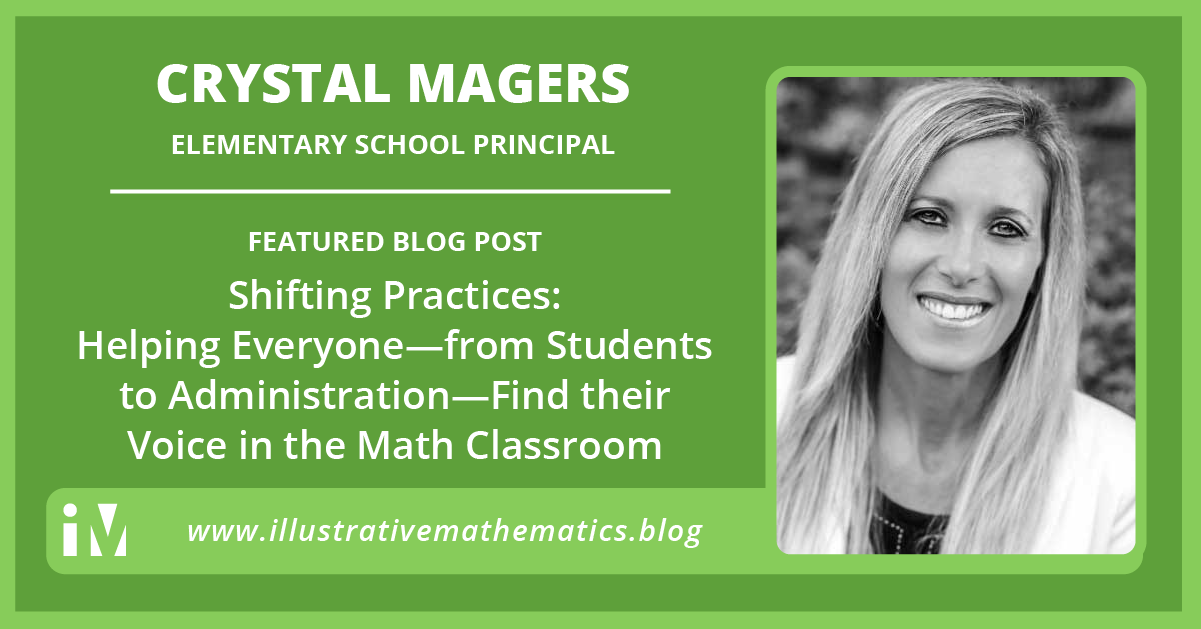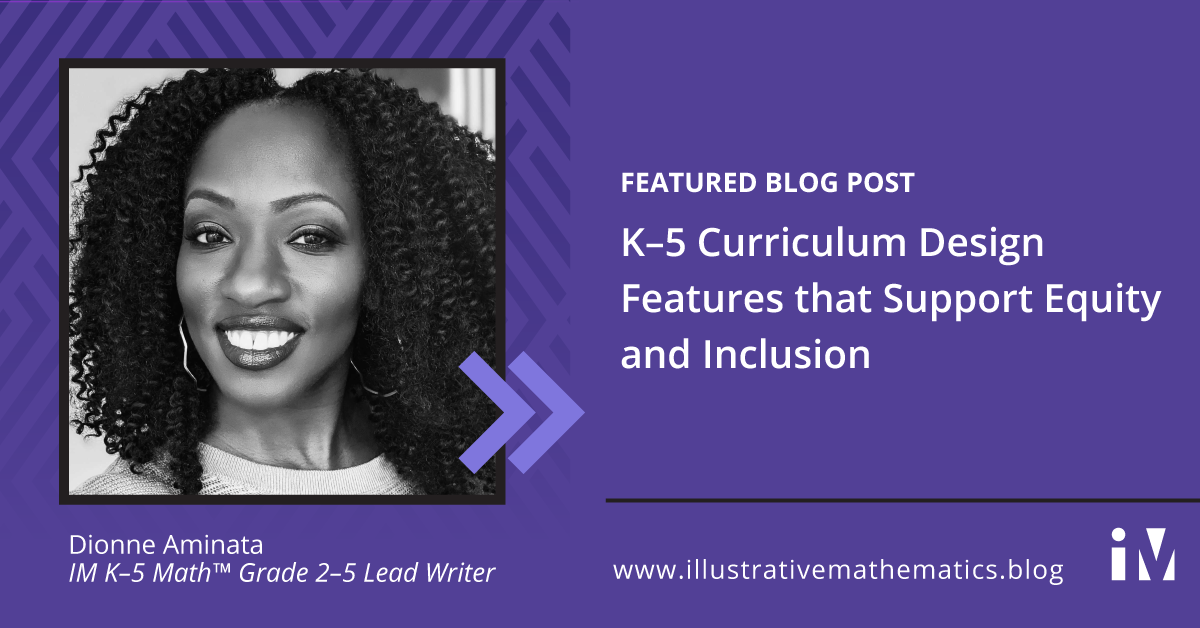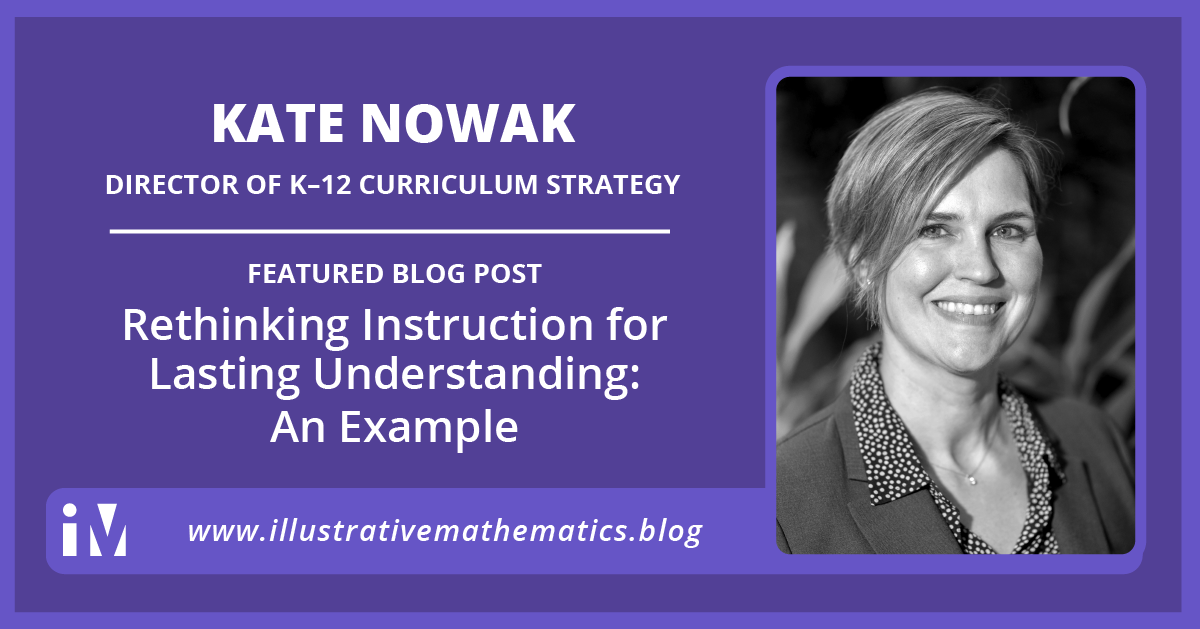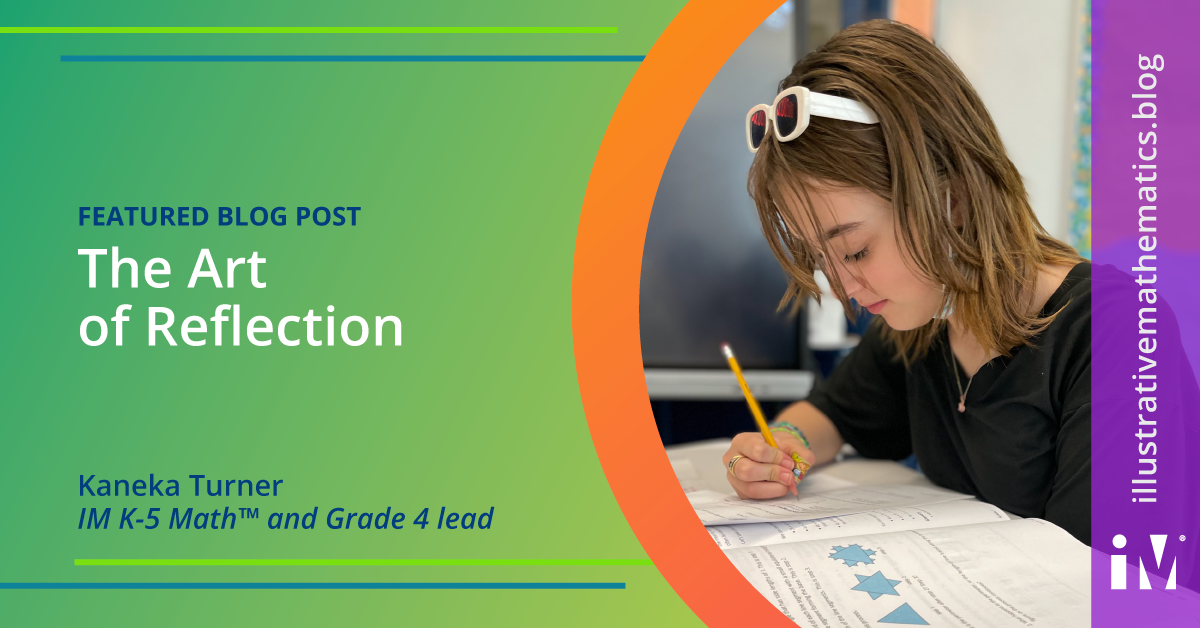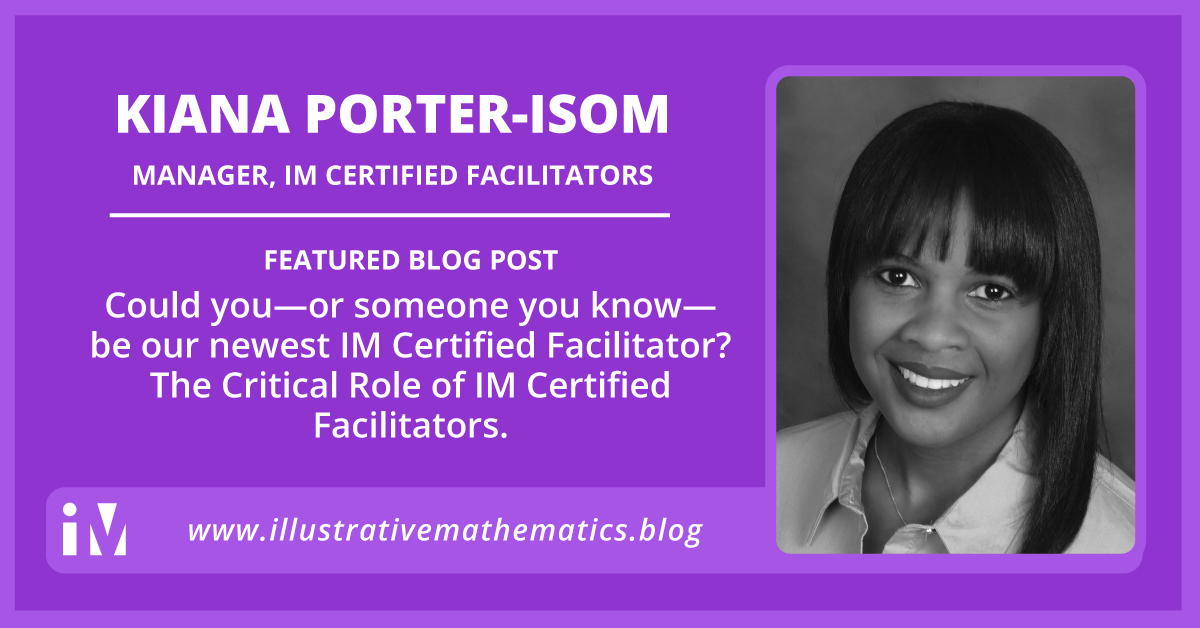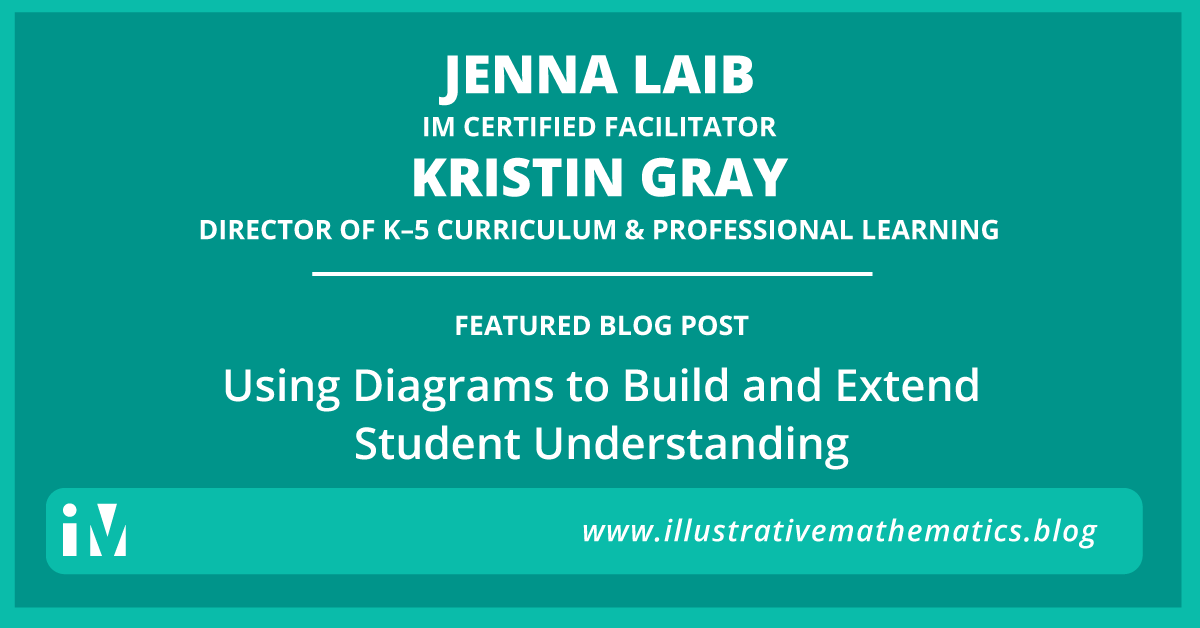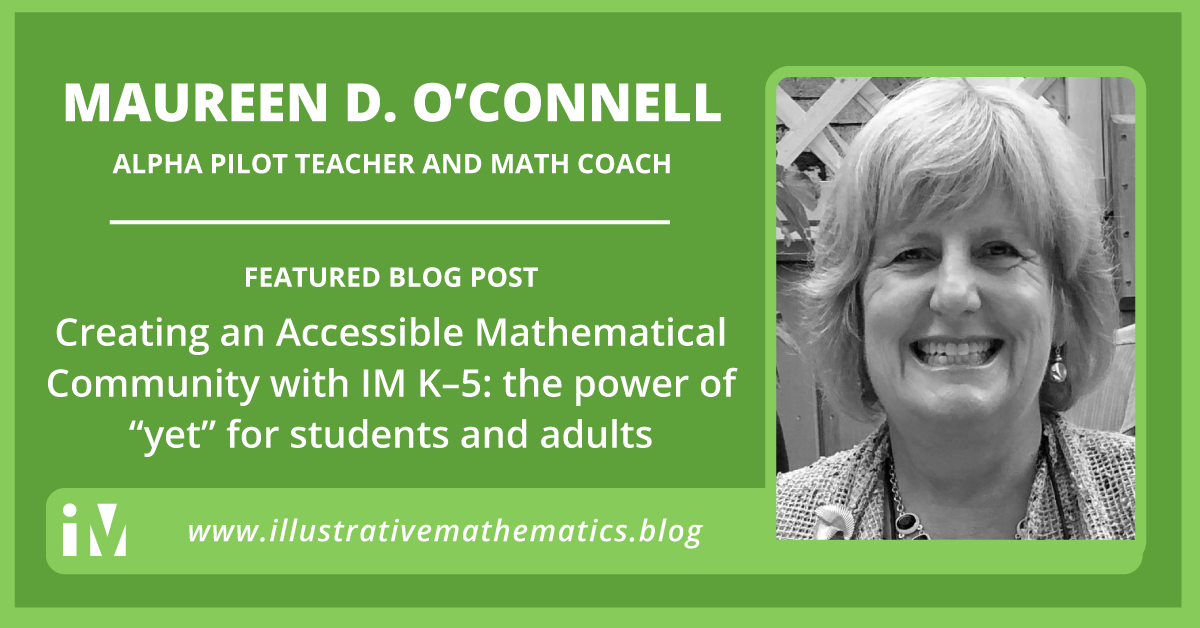IM Certified® Blog
English Learners and Distance Learning: Clarify, Critique, Correct
By Jennifer Wilson and Liz Ramirez We want to acknowledge that we are all in different situations that shape how we respond to the call to adapt our teaching to fit a model for distance learning. This impacts the access we...
Looking to the Fall, Part 2: Creating a Supportive Resource for K–5 Teachers
By Kristin Gray, Director K–5 Curriculum and Professional Learningand Kevin Liner, IM K–5 Professional Learning Lead In our previous post, we highlighted important considerations in planning to support students in the fall....
Looking Ahead to 2020–21 in IM 6–8 Math and IM Algebra 1, Geometry, and Algebra 2
By David Petersen, Lead Curriculum Writer and Kate Nowak, Director of K–12 Curriculum Strategy This school year has been strange and stressful, and there is uncertainty about what next year will look like. Due to school...
Looking to the Fall, Part 1: Welcoming and Supporting K–5 Students
By Kristin Gray, Director K–5 Curriculum and Professional Learningand Kevin Liner, IM K–5 Professional Learning Lead It is overwhelming to think about how teaching and learning will look in the fall. The uncertainty of the...
English Learners and Distance Learning: Enhancing Access
By Liz Ramirez Which students are experiencing success in today’s “distance learning”? What barriers do other students face? While virtual learning platforms have made it possible for some live instruction to continue...
Thoughts on the Back-to-School Problem
By William McCallum One of the consolations in these difficult times has been tweets and Youtube videos of parents discovering just what it takes to be a teacher. Maybe it takes a crisis like this to restore the respect...
IM Talking Math 6–8: Resources for Weekly Re-engagement
By IM 6–8 Math Team This week, IM is launching a new resource to support students and teachers with distance learning. Each week we will publish an open-ended prompt or image that invites math conversation, and a series of...
IM Talking Math
By Kristin Gray Most importantly, I hope everyone is taking care of themselves, their families, and others as much as they are able to during this time. With schools and districts pushing instruction online with a quick...
Planning for Learning in Spring of 2020
Some schools are sending home printed packets and establishing teacher office hours by phone. Some are conducting their regular class schedule, but online. And lots are doing something in between. We understand that it is...
Using math to make decisions in today’s pandemic
By William McCallum At Illustrative Mathematics, our mission is to create a world where all learners know, use, and enjoy mathematics. This is not just an idle wish, one that we have because we love mathematics. Sometimes...
Aggregated Support for the IM Math Community in Spring 2020
We want to share our deepest gratitude for the work each of you has been doing to protect yourselves, your families, your students, and your school communities, as you face hard decisions about how to support students while...
Links to Resources for Shifting Instruction Online
First and most importantly, take care of yourself, your family, and your students. That might not look like doing math, or it might. To the extent that it’s useful, we have curated this list of resources recommended by our...
Links to Math Resources for Caregivers
Here is a collection of links the content team here at IM has used with our own students and kids to start mathematical conversations, play math games together, explore new topics, come up with projects, and have fun. There...
Shifting Practices: Helping Everyone—from Students to Administration—Find their Voice in the Math Classroom
It was easy to say yes! By Crystal Magers Last spring, I was approached by our Math Coordinator and asked about piloting a new math program. I knew my staff was ready for building-wide consistency and we were ready to try...
K–5 Curriculum Design Features that Support Equity and Inclusion
By Dionne Aminata Before I joined the K–5 curriculum writing team at IM, I was a K–8 regional math content specialist for a public charter organization that largely consisted of Title I schools, or schools receiving federal...
Rethinking Instruction for Lasting Understanding: An Example
By Kate Nowak How do we help our students build mathematical understandings that endure past the unit test? If we want students to construct strong, reliable bases of mathematical knowledge, our instruction needs to do more...
When is a number line not a number line?
By William McCallum The number line is a seemingly simple object: a straight line with two points marked 0 and 1. Those two points are the seeds of great complexity, however. Whole numbers are located at positions marked...
The Art of Reflection
“In times of stress, the best thing we can do for each other is to listen with our ears and our hearts and to be assured that our questions are just as important as our answers.” —Mr. (Fred) Rogers By Kaneka Turner We are...
Ratio Tables are not Elementary
By William McCallum In grade 3, as students start to learn about multiplication, they think about products like 6 x 7 in terms of equal groups. 6 x 7 is the number of things when you have 6 groups with 7 things in each...
Could you—or someone you know—be our newest IM Certified Facilitator? The Critical Role of IM Certified Facilitators.
“What I find distinguishes IM is that IM Certified Facilitators are uniquely supported by the IM authoring team to ensure the integrity of the curriculum remains intact.” By Kiana Porter-Isom I was always interested in...
Using Diagrams to Build and Extend Student Understanding
By Jenna Laib and Kristin Gray Take a moment to think about the value of each expression below. $\frac{1}{4}\times \frac{1}{3}$ $\frac{1}{4}\times \frac{2}{3}$ $\frac{2}{4}\times \frac{2}{3}$ $\frac{3}{4}\times...
The 5 Practices: Looking at Differentiation Through a New Lens
By Catherine Castillo Our district had seen a downhill trend in standardized test scores in mathematics. This forced us, as educators, to take an intentional look at our teaching practices. The past few years have been an...
Learning through Teaching
By William McCallum I was in New Orleans a couple of weeks ago visiting a school using IM 6–8 Math and was inspired by the efforts the school was making to implement problem-based instruction. I saw teachers at different...
Creating an Accessible Mathematical Community with IM K–5: the power of “yet” for students and adults
Does the perfect elementary math curriculum exist? Armed with a growth mindset and the Alpha IM K–5 curriculum, teachers in Ipswich Public Schools push their thinking to reach all mathematicians. By Maureen D. O’Connell I...
